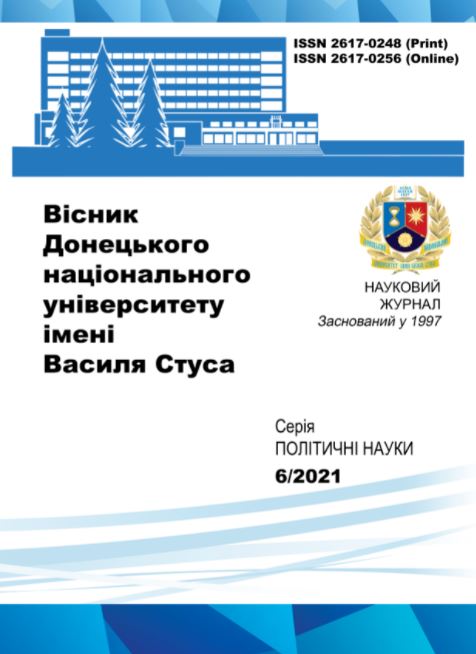The phenomenon of stupidity: from political chaos to political rationalism
DOI:
https://doi.org/10.31558/2617-0248.2021.6.1Keywords:
stupidity; fool; reason; political processes; political regimeAbstract
When the world was in the midst of the First World War in the early twentieth century, and the Russian Empire was showing unpreparedness for war, inflation and protest mood inside the country, on October 1, 1916 at a State Duma Cadet leader Pavel Milyukov delivered a historic speech. He reminded members of parliament of 1915, the year of the political crisis, when a commission of inquiry was set up against Defense Minister Volodymyr Sukhomlynov, who was considered a traitor due to his defeat on the fronts. Sukhomlinov was fired, and the hated Boris Sturmer was appointed Minister of the Interior and later Minister of Foreign Affairs. Therefore, the confidence in the government, which for some time was established among the military, in 1916 was lost again.
Pavlo Milyukov, referring to the foreign press, pointed to Germany’s awareness of Russia’s strategic policy and the sabotage of the Russian government in organizing a reliable rear and military offensive at the front. "When the Duma insists with increasing persistence that the rear must be organized for a successful struggle, and the authorities continue to say that to organize means to organize a revolution, and consciously prefers chaos and disorganization, what is it, stupidity or betrayal?" – P. Milyukov addressed such a question to the members of the Duma [4].
The natural inability of the government to organize institutional activities and the senseless policy of political leaders as a practical incompetence of political management, raises the question of understanding the phenomenon of stupidity in the political dimension. The purpose of this article is to find out the political nature of stupidity.
References
Аристотель. Сочинения в 4 томах. Т.1. М., Мысль, 1976. 550 с.
Бэкон Ф. Сочинения в 2 т. Т. 1. М., Мысль», 1977. 567 с.
Бэкон Ф. Сочинения в 2 т. Т. 2. О мудрости древних. С.231 – 301.
Виступ П. Н. Мілюкова на засіданні Державної думи. (Зі стенограми засідання 1 листопада 1916 року). URL: http://doc20vek.ru/node/1428 (Дата звернення 09.05.2021).
Кант И. Критика чистого разума. М.: Мысль, 1994. 591 с.
«Людство весь час регресує в бік дурниці», – видатний французький філософ Бернар Стіглер. Huxley. URL: https://huxley.media/chelovechestvo-vse-vremja-regressiruet-v-storonu-gluposti-vydajushhijsjafrancuzskij-filosof-bernar-stigler/ (accessed 19.06.2021).
Марина Х. А. Поверженный разум. Теория и практика глупости. – Астрель, 2010.
Спирова Э. Разум в окоеме глупости. Философская антропология. 2017. Т. 3. №. 1. С.117 – 134.
Gardner H. Stupidity and the Three Faces of Intelligence. Le philosophoire. 2014. №. 2. С. 9 – 17.
How politics makes us stupid. Ezra Klein. Vox. URL: https://www.vox.com/2014/4/6/5556462/brain-deadhow-politics-makes-us-stupid (accessed 09.05.2021).

